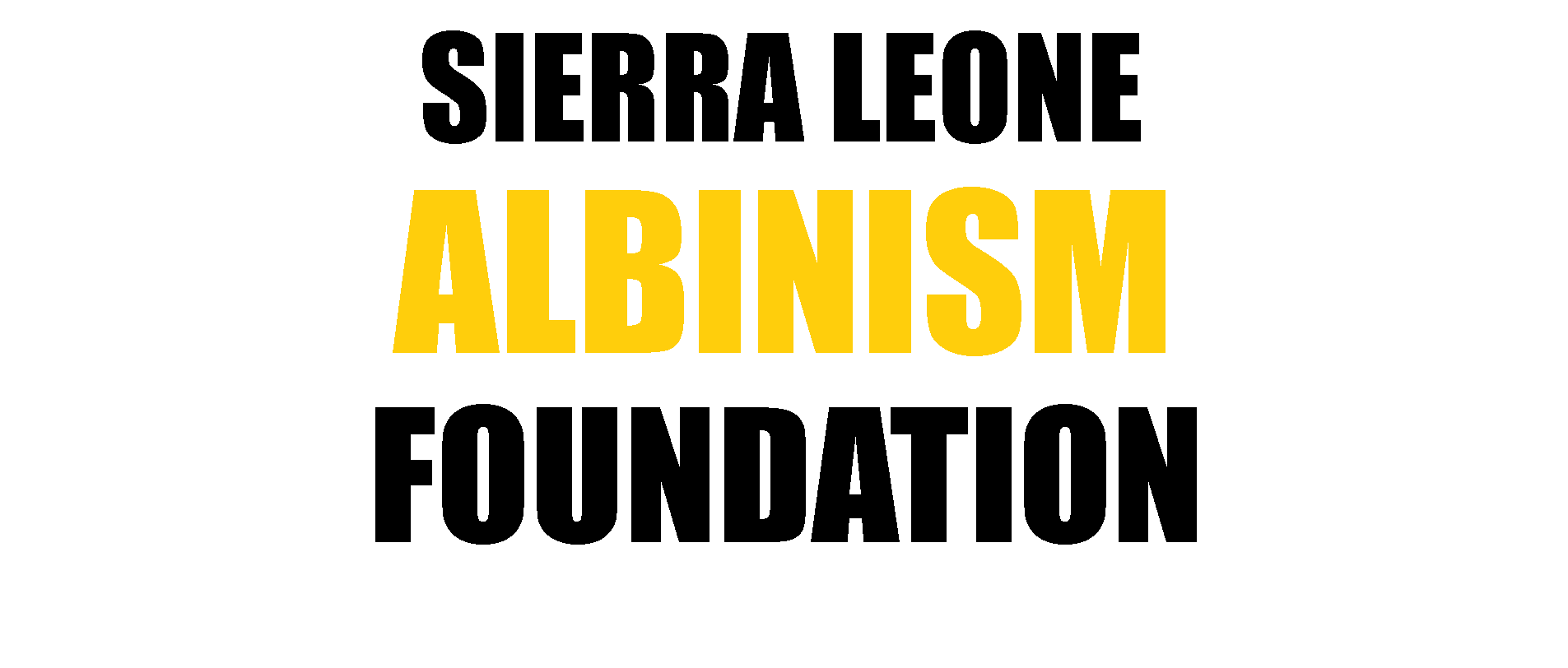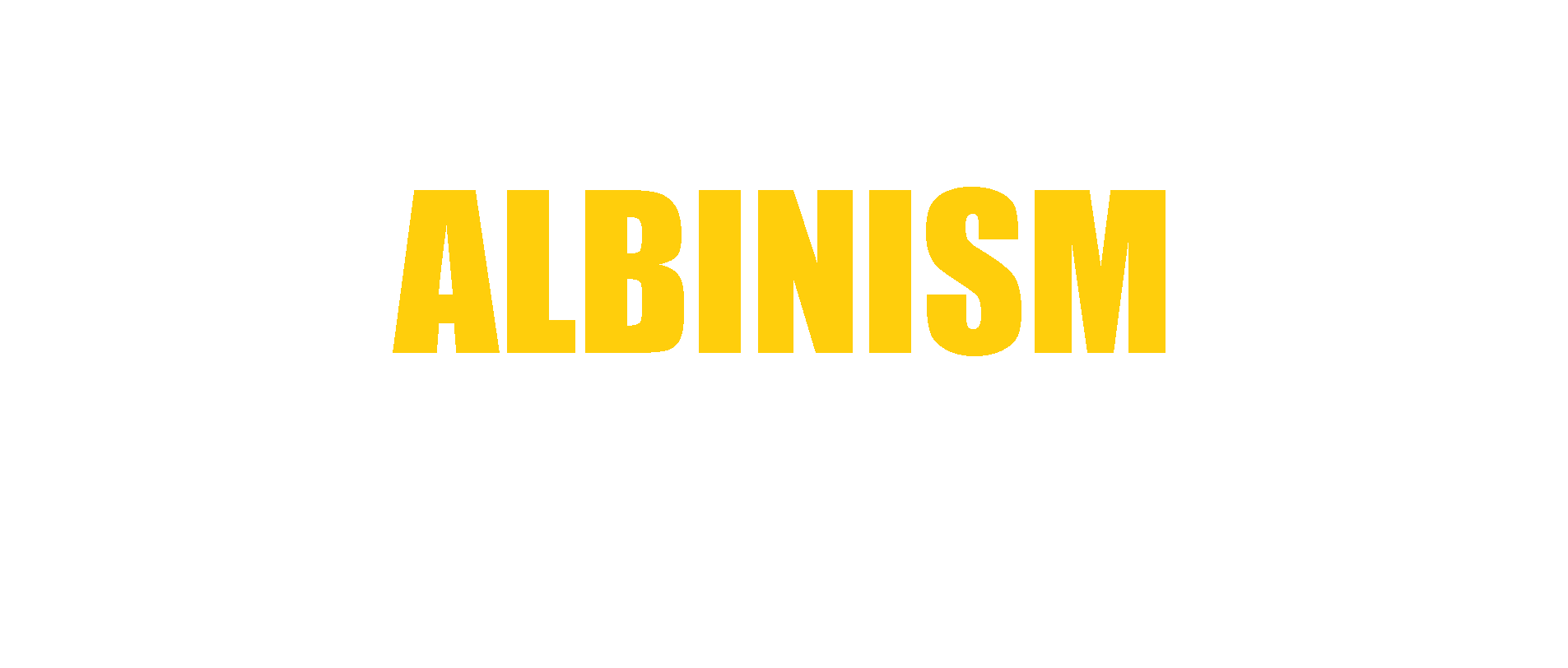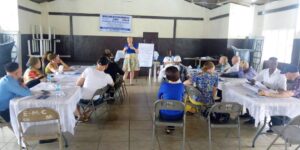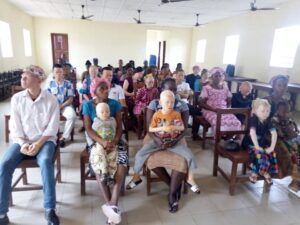CHALLENGES PERSONS WITH ALBINISM FACE IN EDUCATION AND WAYS TO REMEDY THEM
C/O SIERRA LEONE ALBINISM FOUNDATION (SLAFo) SECRETARIAT
49 CIRCULAR ROAD, FREETOWN
Persons with Albinism (PWA) face plenty of challenges in Sierra Leone. They are discriminated in their homes, communities and in many spheres of life including learning institutions. This has led to so many of them dropping from school. Few cope amidst all the discrimination and stigmatization to acquire education on to university level but the majority will dropout from school because of the above reasons or because they have no better support.
They struggle to access education, with circumstantial accounts pointing to a high school dropout rates among those of school-going age, due to a myriad of factors including bullying by their peers and classmates, exclusion and isolation given their physical difference. In addition, the state’s failure to implement policies of inclusive education that would address both the support and accommodation needed, and the school culture and environment, have perhaps been the largest contributors to high school abandonment rates among PWA.
Classrooms and lecture halls are not customized to accommodate them, and tutors lack the basic training on how to ensure that they access education on equal basis. All these challenges mean that only the exceptionally motivated can complete their primary education, go to secondary schools, colleges and universities.
One among many challenges that affect PWA in school has to do with their visual impairment. This short sightedness impacts negatively on their education. Almost all schools in Sierra Leone lack the assistive devices to aid their vision in school.
According to a nationwide random sampling survey that was done by the Lady Ellen Women’s Aid Foundation (LEWAF) together with the Sierra Leone Albinism Foundation (SLAFo) with support from the Open Society Initiative for West Africa (OSIWA) in 2018, it reported that teachers who were part of the respondents said that 66.36% had PWA in their schools; 75.76% treated PWA students the same way they would treat students without albinism; 42.57% were confident that teaching staff were capable of addressing the challenges of PWA; 36.46% said students without albinism were indifferent to PWA students; 32.63% said PWA students were included in activities organized by their schools; and 67.01% said their schools did not provide assistive device for PWA students.
The statistics from the survey above shows that PWA are facing a lot of challenges in learning institutions either because there is no better understanding on the part of school authorities as to how to treat them in schools or because of certain myths that are associated to them.
The Ministry of Basic and Senior Secondary Education is the lead government agency responsible for education in the country. Although the Ministry through its Special Needs Directorate categorizes PWA as persons with disability, it lacks the capability to provide the enabling environment in schools and colleges for them to attain their full educational potentials.
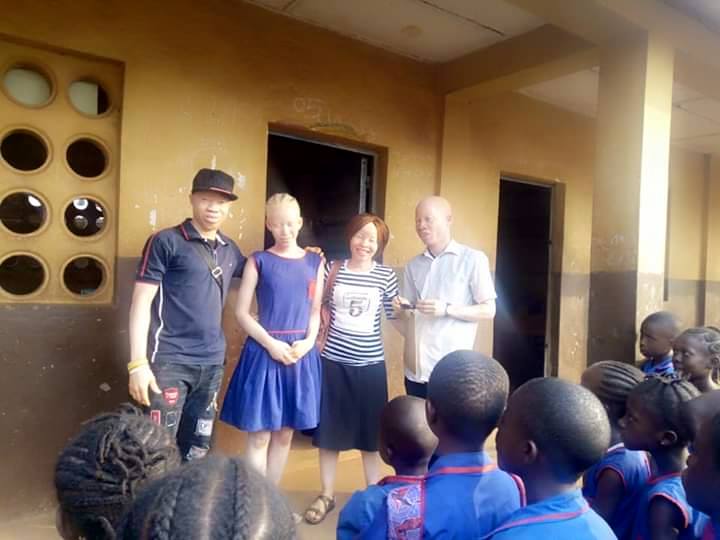
HOW TO SOLVE THE CHALLENGES OF PWA IN LEARNING INSTITUTIONS
States should adopt specific measures to protect and preserve the rights to life and security of persons with albinism, as well as their right not to be subject to torture and ill-treatment, and ensure their access to adequate health care, employment, education and justice.
School authorities should always make PWA occupy the front rows in school with special attention during classes. They should not allow other pupils to bully them. They should not exclude them from extra curriculum activities.
PWA should be treated differently in school because of their special needs. Their condition is unique so special attention needs to be given to them whiles in school.
Stakeholders should develop a well-designed public education program to raise awareness over the challenges of PWA on the one hand, and changing mind-sets and perceptions of school authorities and the wider public on the other hand using organizations dealing with PWA issues like SLAFo.
School authorities should enact laws protecting the rights of PWA in schools and work should be done with the relevant stakeholders to champion the enactment of specific laws protecting the rights and lives of PWA in school.
School authorities should identify ways through which the issues affecting PWA in schools be mainstreamed in their programs.
Subsidized provision of social services by key sectorial Ministries such as Ministry of Basic and Senior Secondary Education to make a case for free or subsidized education services for PWA.
